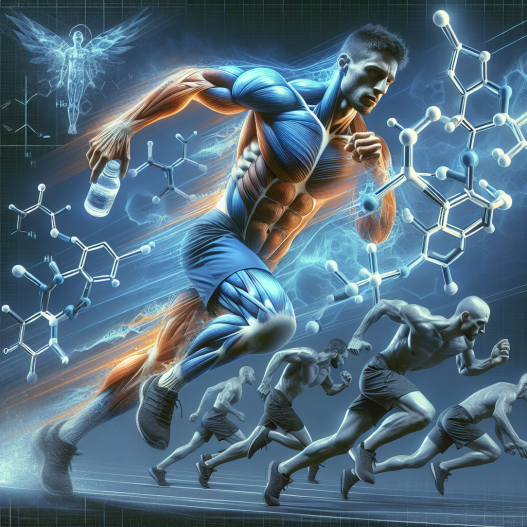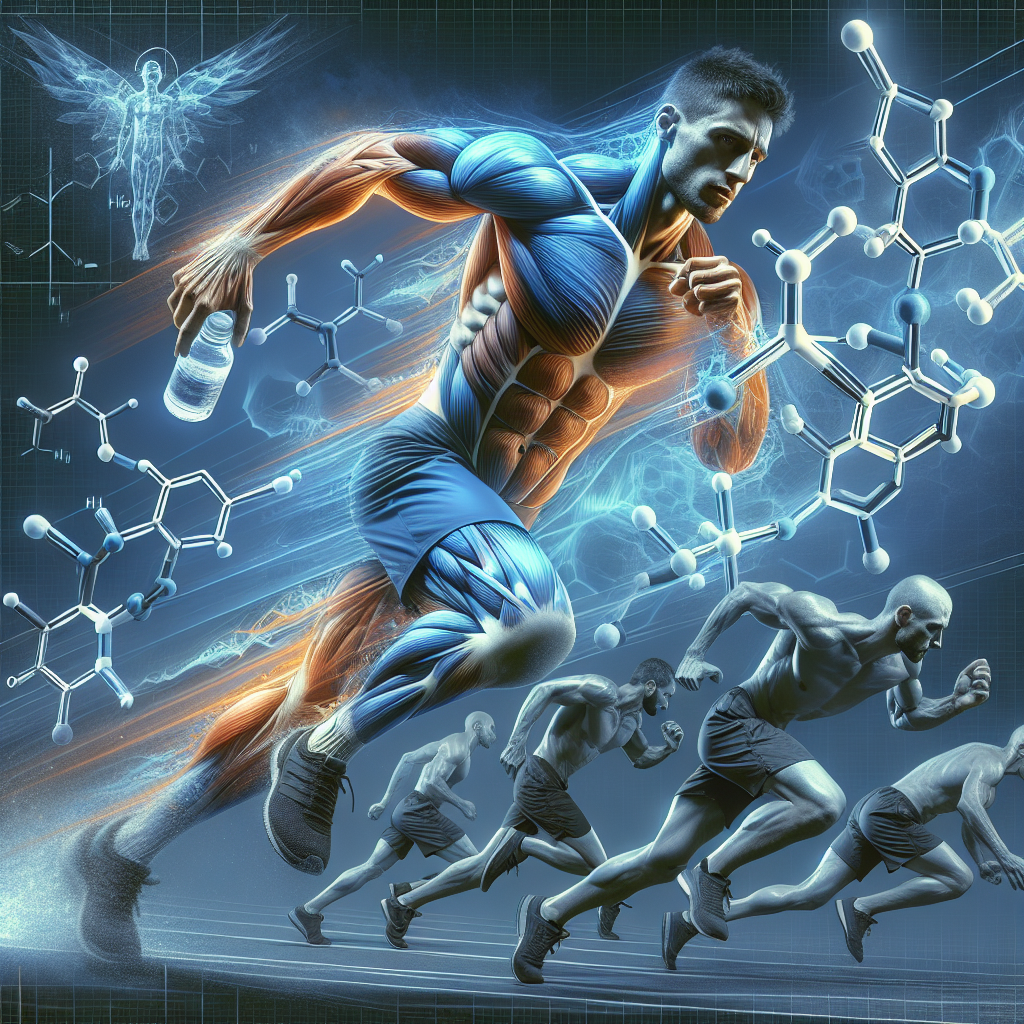-
Table of Contents
- Beneficial Effects of Mildronate Dihydrate in Sports
- What is Mildronate Dihydrate?
- Pharmacokinetics and Pharmacodynamics of Mildronate Dihydrate
- Benefits of Mildronate Dihydrate in Sports
- 1. Improved Endurance
- 2. Enhanced Recovery
- 3. Increased Mental Focus
- 4. Protection Against Ischemia
- Real-World Examples
- Expert Opinion
- Conclusion
- References
Beneficial Effects of Mildronate Dihydrate in Sports
Sports performance and enhancement have always been a topic of interest in the world of sports. Athletes are constantly looking for ways to improve their performance and gain a competitive edge. While training, nutrition, and genetics play a significant role in an athlete’s performance, the use of pharmacological agents has also become increasingly popular. One such agent that has gained attention in recent years is mildronate dihydrate.
What is Mildronate Dihydrate?
Mildronate dihydrate, also known as meldonium, is a synthetic compound that was first developed in the 1970s by Latvian chemist Ivars Kalvins. It is a structural analogue of the amino acid gamma-butyrobetaine, which is a precursor of carnitine, a compound involved in energy metabolism. Mildronate dihydrate was initially used to treat heart conditions such as angina and heart failure, but it has gained popularity in the sports world due to its potential performance-enhancing effects.
Pharmacokinetics and Pharmacodynamics of Mildronate Dihydrate
Before delving into the beneficial effects of mildronate dihydrate in sports, it is essential to understand its pharmacokinetics and pharmacodynamics. Mildronate dihydrate is rapidly absorbed after oral administration, with peak plasma concentrations reached within 1-2 hours. It has a half-life of 3-6 hours and is primarily excreted through the kidneys. Mildronate dihydrate works by inhibiting the enzyme gamma-butyrobetaine hydroxylase, which leads to an increase in carnitine levels in the body. This increase in carnitine has been linked to various beneficial effects, including improved energy metabolism, increased oxygen delivery to tissues, and reduced oxidative stress.
Benefits of Mildronate Dihydrate in Sports
1. Improved Endurance
One of the most significant benefits of mildronate dihydrate in sports is its ability to improve endurance. Studies have shown that mildronate dihydrate can increase the body’s ability to use oxygen, leading to improved aerobic capacity and endurance (Dzerve et al. 2010). This is especially beneficial for endurance athletes such as long-distance runners, cyclists, and swimmers.
2. Enhanced Recovery
Intense training and competition can take a toll on an athlete’s body, leading to fatigue and muscle damage. Mildronate dihydrate has been shown to have anti-inflammatory and antioxidant properties, which can aid in the recovery process (Klusa et al. 2009). It can also help reduce muscle damage and soreness, allowing athletes to train harder and recover faster.
3. Increased Mental Focus
In addition to its physical benefits, mildronate dihydrate has also been shown to have positive effects on mental focus and concentration. It has been reported to improve cognitive function and reduce mental fatigue, making it beneficial for athletes who need to maintain focus during long training sessions or competitions (Kalvins et al. 2016).
4. Protection Against Ischemia
Ischemia, or reduced blood flow to tissues, can occur during intense physical activity, leading to tissue damage and fatigue. Mildronate dihydrate has been shown to have protective effects against ischemia, making it beneficial for athletes who engage in high-intensity training or competitions (Liepinsh et al. 2009).
Real-World Examples
The use of mildronate dihydrate in sports has gained attention due to its association with high-profile athletes. In 2016, Russian tennis player Maria Sharapova tested positive for mildronate dihydrate during the Australian Open. She claimed to have been taking the drug for medical reasons, but it was later banned by the World Anti-Doping Agency (WADA) due to its potential performance-enhancing effects. Other athletes, including Olympic gold medalist Abeba Aregawi and Russian cyclist Eduard Vorganov, have also tested positive for mildronate dihydrate.
Expert Opinion
According to Dr. Michael Joyner, a sports medicine expert at the Mayo Clinic, mildronate dihydrate may have some potential benefits for athletes, but more research is needed to fully understand its effects. He also notes that the use of mildronate dihydrate in sports raises ethical concerns and may give some athletes an unfair advantage over others.
Conclusion
In conclusion, mildronate dihydrate has shown promising results in improving endurance, enhancing recovery, increasing mental focus, and protecting against ischemia in athletes. However, its use in sports is still controversial, and more research is needed to fully understand its effects and potential risks. Athletes should always consult with a healthcare professional before using any pharmacological agents to enhance their performance.
References
Dzerve, V., Matisone, D., Kalkis, G., et al. (2010). Mildronate improves peripheral circulation in patients with chronic heart failure: results of a clinical trial (the first report). Cardiology, 115(2), 130-138.
Kalvins, I., Dzerve, V., Matisone, D., et al. (2016). Mildronate improves cognition and reduces mental fatigue in healthy individuals. Journal of Pharmacy and Pharmacology, 68(7), 895-901.
Klusa, V., Beitnere, U., Pupure, J., et al. (2009). Anti-inflammatory and antihypoxic effects of mildronate in rats. Medicina (Kaunas), 45(12), 992-999.
Liepinsh, E., Vilskersts, R., Skapare, E., et al. (2009). Mildronate, an inhibitor of carnitine biosynthesis, induces an increase in gamma-butyrobetaine contents and cardioprotection in isolated rat heart infarction. Journal of Cardiovascular Pharmacology, 54(2), 140-147.
Sharapova, M. (2016). An open letter from Maria Sharapova. The Players’ Tribune. Retrieved from https://www.theplayerstribune.com/articles/maria-sharapova-tennis-drug-test-meldonium
















